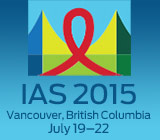 People taking Truvada (tenofovir/emtricitabine) as pre-exposure prophylaxis (PrEP) to prevent HIV tend to follow the standard daily-dosing regimen better than intermittent dosing schedules based on the timing of sexual acts, aidsmap reports. Results from HPTN 067/ADAPT studies were presented at the 8th International AIDS Society Conference on HIV Pathogenesis, Treatment and Prevention in Vancouver, British Columbia.
People taking Truvada (tenofovir/emtricitabine) as pre-exposure prophylaxis (PrEP) to prevent HIV tend to follow the standard daily-dosing regimen better than intermittent dosing schedules based on the timing of sexual acts, aidsmap reports. Results from HPTN 067/ADAPT studies were presented at the 8th International AIDS Society Conference on HIV Pathogenesis, Treatment and Prevention in Vancouver, British Columbia.
The research comprised three studies, conducted in Bangkok, the Harlem neighborhood of New York City and Cape Town, respectively. In each location the participants were randomized to receive PrEP with instructions to take Truvada according to one of the following three dosing protocols: daily; twice a week plus an extra dose following sex; or purely intercourse-based dosing, with one dose up to 48 hours before sex and another two hours after sex.
The Bangkok trial included 176 men who have sex with men (MSM) and two transgender women. The members of the group had largely attended college and had a low unemployment rate. They had sex an average of once a week.
The Harlem group included 176 MSM and three trans women. Over two-thirds were unemployed, and about the same proportion were African American. This group also had sex about once a week.
The Cape Town trial included 179 women, four-fifths of whom were unemployed.
The participants were all followed for six months. The investigators measured adherence through electronic pill bottles. They also called the participants each week to ask them about their sexual activity.
In Bangkok, the daily, twice-weekly, and intercourse-based dosing protected 85 percent, 79 percent and 65 percent of sexual acts, respectively. The corresponding respective rates for the Harlem group were 66 percent, 47 percent and 52 percent, and for the Cape Town participants the respective rates were 75 percent, 56 percent and 52 percent.
Participants most frequently missed the after-sex doses. This occurred in both the twice-weekly and intercourse-based dosing protocols.
Five participants in Cape Town and one in Harlem contracted HIV during the study. All six of them had low or negligible levels of PrEP in their bodies.
“This is an important step forward for optimizing HIV prevention strategies for people who would otherwise be at high risk for acquiring HIV infection,” study chair Robert M. Grant, MD, MPH, of the Gladstone Institutes and the University of California, San Francisco, said in a press release. “The findings will inform the next generation of PrEP research and the development of best practices regarding PrEP adherence and counseling.”
To read the aidsmap article, click here.
To read the press release, click here.
Advertisement
Advertisement
Advertisement






Comments
Comments